It began on a brilliantly sunny morning in August 1939, just days before war was declared. It was 8am, and my twin sister and I were among hordes of children in the playground of our school in Dagenham, Essex, waiting to leave. Snivelling children with fussing parents, but eventually we joined other school group to walk the long road by Ford Motor Works to the Thames. We carried small bags and gas masks and had labels pinned to our coats, looking like a column of midget refugees.
We reached the river and found a large ship waiting - no, not the Queen Mary, but the pleasure steamer Daffodil. Where were we going? Southend, Margate, or even America? We finally landed at Lowestoft in Suffolk. Three days later, after sleeping on straw in a school, eating mostly bread and cheese, we were taken to our new home, a small town in Norfolk.
The house was a large private boarding school run by two elderly ladies, and to have ten 5 to 10 year-olds girls billeted with them must have been a shock. We were kept apart from the boarders, sleeping in freezing dormitories with lino on the floor, eating at a large table and using the outside toilets. But we soon settled. The only time we mixed with the boarders was when we formed the tail of the crocodile as we walked to church on Sunday mornings.
At home, my sister and I usually attended the Methodist Sunday School, but I remember being fascinated by the colourful robes, the candles and the music every week in church.
Soon it was December, with blasting winds sweeping across the landscape, and then the snow came. It was the only time I suffered from chilblains. But Christmas was coming! How should we spend the holiday, and would Santa Claus know where we were? One of the teachers suggested we perform a pantomime on Christmas Day; we decided on Snow White and the Seven Dwarves, as it provided enough parts for us all. We learnt our lines and the songs and made costumes from crepe paper, getting more and more excited. My sister and I were dwarves - I can't remember which ones.
Christmas Eve: baths in three inches of water, early to bed, and come midnight we were awake. We could see fresh snow outside, and a bright moon shining through frosty windows, and we knew that Santa had been. We were soon unpacking presents and eating sweets; but why do people always give identical twins identical presents?
On Christmas morning only the tail of the crocodile went to church - the boarders had gone home. After lunch it was panto time. The audience was small: some teachers and the maids. After much giggling, we were dressed and the show began. The performance lasted about twenty minutes and the applause was sparse, but we were delighted and felt like stars!
On Boxing Day our parents came and we proudly showed them our dormitories, made jokes about breaking the ice in the water jugs before we could wash, and walked across the yard to the toilets. Very proud to show them our new life, we didn't notice the shock on their faces.
We walked around the town in the fresh snow, showing them the school and church. The sun was shining brightly; it was a lovely day. We found a little cafe open with steaming windows and the smell of food, and went in. Oh, how my chilblains itched! But as we were allowed to choose what we liked to eat, the pain was soon forgotten.
We returned to the school, and our parents caught the train the London. Goodbyes were sad, but we were soon planning the rest of the holiday. Christmas had been great, so why did our parents take us home the next week? Only years later, when we had children of our own, did we understand. Six months later we were off again, and you can read about that in the next Cross Keys... [the Church magazine]
In 1940, six months after my twin sister and I left Norfolk and returned to London, we were off again, complete with gas masks, small bags and labels pinned to our coats. This time we went by coach to Paddington Station, then off to the West Country.
We eventually arrived at Evercreech, a small village in Somerset, from where we were taken by bus to our designated villages. Our school went to Stoke St. Michael, between Frome and Shepton Mallet on the side of the Mendips. It was a self-contained a village with a church, two chapels - one Methodist, one Wesleyan - a school, two pubs, the butcher's and a baker's, post office, newsagents and the smallest co-operative store I've ever seen. One bus on weekdays, in and out. The men mostly worked on farms or in the nearby quarries.
We assembled in the Memorial Hall to be chosen and taken to our new homes but, being twins, my sister and I were the last ones left. The billeting officer said he would take us to his house. It seemed enormous to us, built of Bath stone on a platform, 10 or 15 feet above the road with a drive going round to the back. The view was across the valley to a village on the other side. We had never been in a detached house before, and we spent the first day running round and round it.
The house was owned by Mr and Mrs P, and I still have the postcard we sent home, saying 'they have a cat, and the lady is a little hard of hearing.' Mr P was from Yorkshire and as well as being the billeting officer, he was the headmaster, a Methodist lay preacher and a Parish Councillor, and he did a lot for the British Legion. He was most respected: men in the village always saluted him and people came to him for advice.
In the house there also lived a school teacher, Miss M, and Mr and Mrs P had an only son, who was in the army. A few months later, their niece from Portsmouth came to stay, so altogether there were three young children in the house.
Mr and Mrs P had a large garden where fruit and vegetables were grown and chickens were kept. Every Saturday afternoon we went to Westfield, near Radstock, where Mrs P's sister had a grocery shop, and we collected our rations. Mr P belonged to a library in Bath, and I often went with him to change his books; Bath remains my favourite city to this day. And although I have difficulty remember the registration number of my own car, I can never forget that of his: FHW 712.
Sunday was a day of rest; we were only allowed to read or write home, and go to Sunday school and, in the evening to the Methodist Chapel, where Mr P sometimes took the service. The Chapel was very small - you could probably fit five or six of it in St Peter's.
We led an idyllic life. Each morning one of us walked to the nearby farm to collect fresh milk in a can. We came home from school for lunch, and once we'd had tea after school the three of us were off to the fields and the woods. In the summer we helped with the haymaking and harvesting. Even now, when I see bluebells I think of the woods at Stoke St Michael. And cowslips remind me of a field near Shepton Mallet. The war seemed so far away; it only touched the village when a German plane crashed in a nearby field, although during the blitz on Bristol we could see on the horizon the glow of fires and the flash of bombs.
Then everything changed, and the war came to the family. Vernus, Mr and Mrs P's son, was fighting overseas. Some months after we arrived, a letter came from the War Office saying that he was missing in Crete. Later we heard that he was a prisoner of war; then, a couple of months on, we heard that he had died on a forced march through Greece.
Miss M always walked to school early, and she must have told people the sad news because when we went to school with Mr P all the villagers were at the gates, heads bowed. But school had to go on - nothing must interfere with us children. I never saw Mr and Mrs P shed a tear - they didn't want to upset us - but every night I could hear them breaking their hearts in their bedroom. Their future had gone.
The only time Mr P gave way was at the end of a service on Sunday evening when the hymn was 'God be with you till we meet again'; that was the last thing Mr P had said to his son. He walked out of chapel. Our parents wanted to take us home, but Mrs P said 'No, leave them here.' I have never seen such stoicism; they were amazing. They died inside with their son, but people depended on them and so they made sure that life carried on.
After about three years we had to return home to attend the High School, but we visited Mr and Mrs P every year, and I stayed with Mrs P for two weeks when Mr P went to represent the British Legion at the unveiling of a memorial in Athens to soldiers with no known graves, on which Vernus's name was carved. We listened to the service on the radio.
Years later we took my son down to Stoke St Michael several times, and Mr AND Mrs P made a great fuss of him. Mr P died in 1975 at the age of 89; ten weeks later Mrs P joined him. Their property was left to their nephews and nieces, but a few months later my sister and I received small parcels and a letter saying that the family had found two identical boxes in a drawer, containing almost identical brooches, and they thought of us. I still wear mine on my green jacket, as many of you must have seen.
I have visited the house and village several times since then. Two or three years ago I realised that I hadn't been for some time and felt the need to go. The first stop is always the churchyard to place flowers on Mr and Mrs P's grave and to see Vernus's memorial plaque on the wall of the church. Then I realised that the duck pond had gone, replaced by houses. But the real shock came when I visited the school. It was a ruin, covered with weeds and rubbish, and when I asked a woman about it she said a new school had been built and they were hoping a developer would buy the land.
As I drove up the hill to the house, I passed the chapel - but it wasn't there. It was rubble. All I could think of was how upset Mr P would have been. I drove out of the village in tears, saying 'I'll never return.' And I won't.
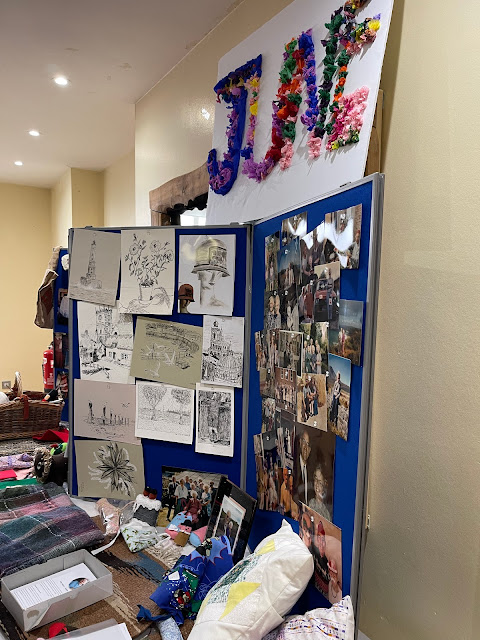
























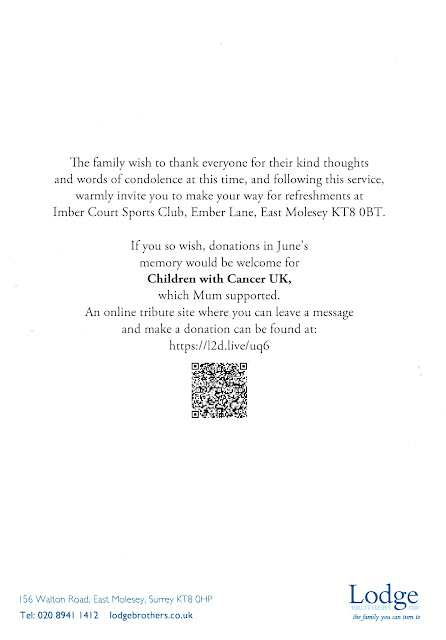
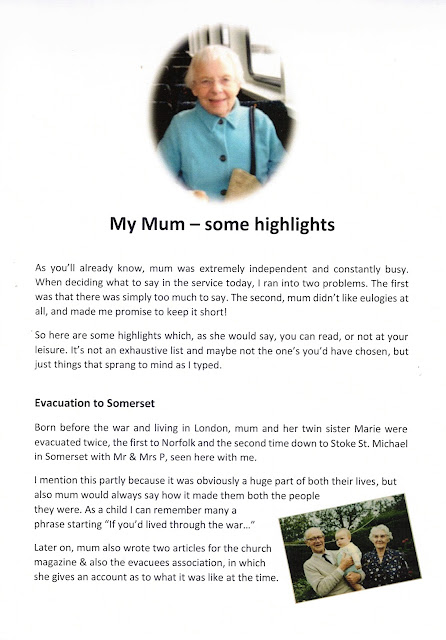
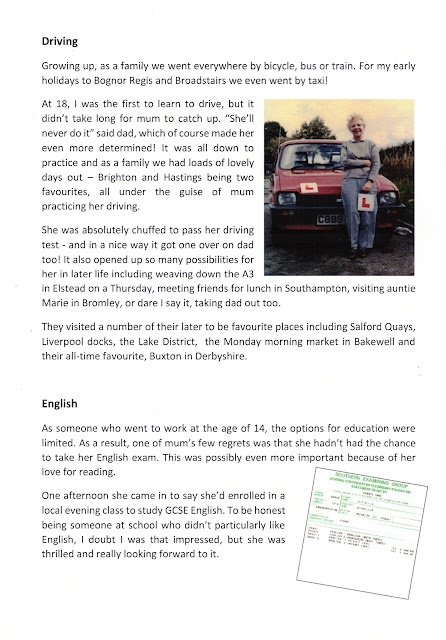

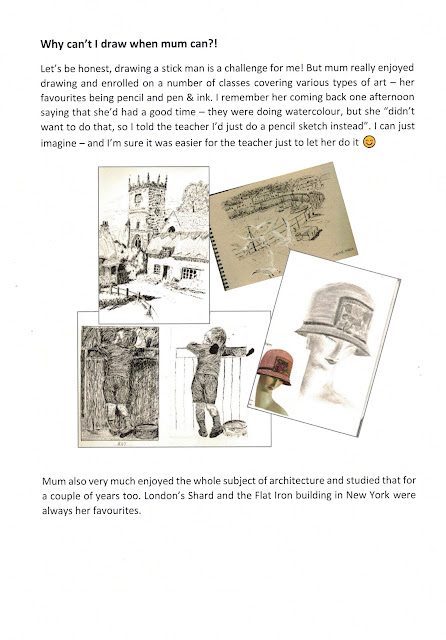


























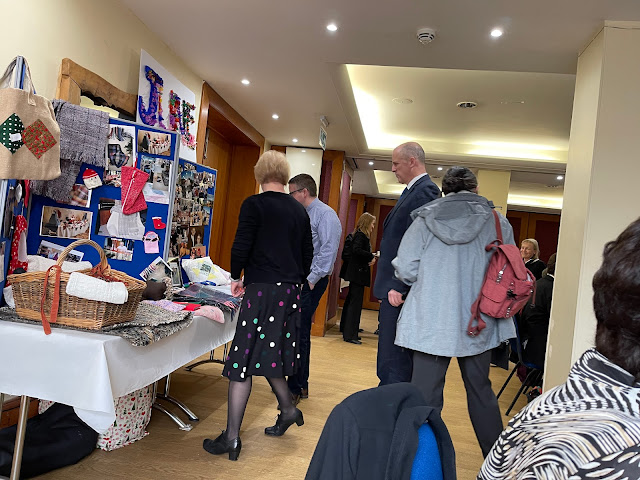

.JPG)











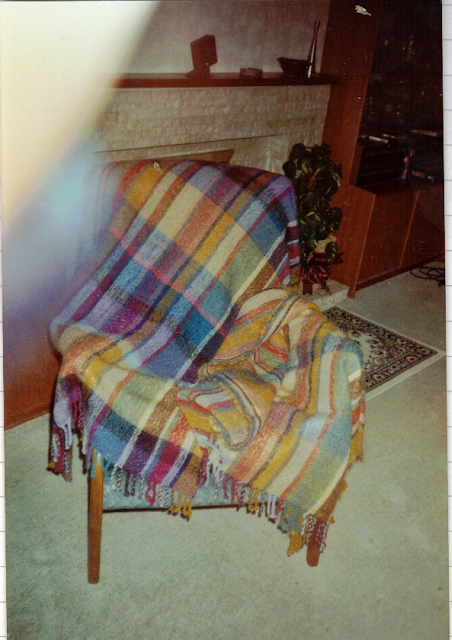







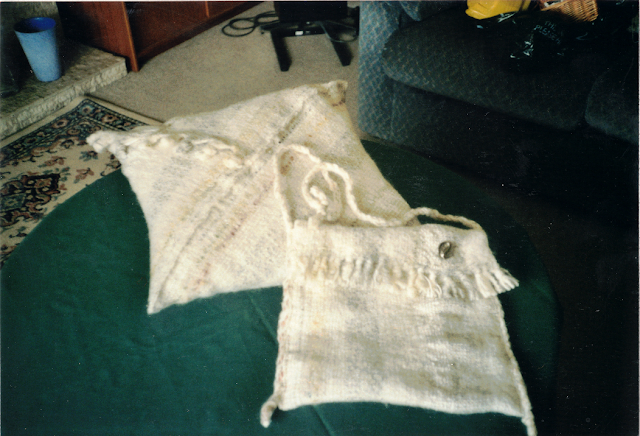


















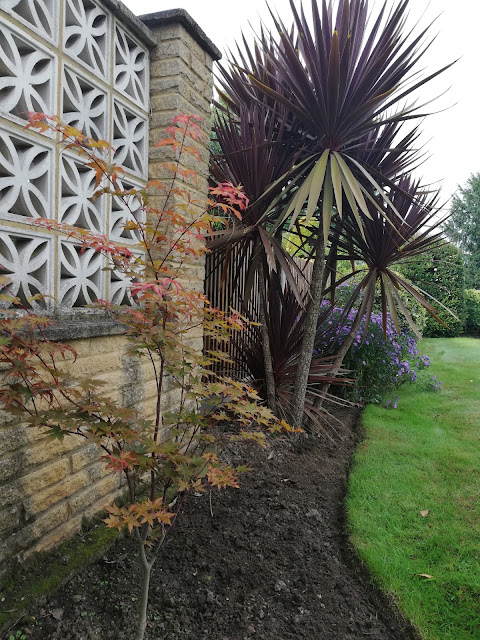




No comments:
Post a Comment